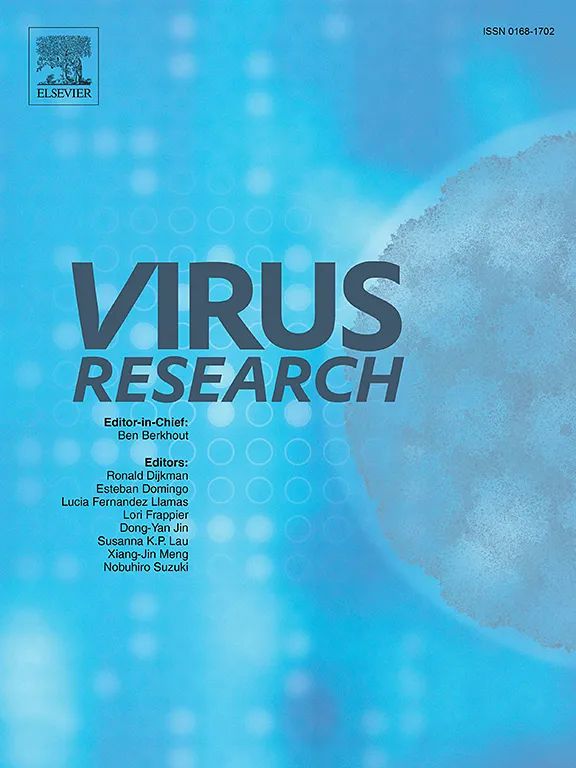金银花植物MIR2911对SARS-CoV-2变体有效
IF 2.7
4区 医学
Q3 VIROLOGY
引用次数: 0
摘要
COVID-19大流行仍然是一项全球卫生挑战,新的SARS-CoV-2变体的出现使治疗和预防工作复杂化。来自金银花的植物源性microRNA MIR2911已显示出对SARS-CoV-2原始菌株的抗病毒活性。在这里,我们研究了它对Delta变异(B.1.617.2)的疗效。利用RNAhybrid计算分析在Delta变异基因组中鉴定出多个MIR2911识别元件(MREs)。报告实验证实MIR2911结合这些MREs,显著降低荧光素酶活性。在感染Delta变异的Vero E6细胞中,MIR2911以剂量依赖的方式抑制RdRP RNA表达和病毒复制,这一点得到了斑块试验的证实。为了提高其治疗潜力,我们开发了一种新的递送系统,使用JCPyV CLP,一种能够转导遗传物质的病毒样颗粒。clp介导的MIR2911递送不仅进一步提高了其抗病毒效果,降低了RdRP RNA的表达和病毒斑块的形成,毒性最小,而且与传统的基于脂质体的方法相比,MIR2911的转染效率也显著提高。这些发现突出了MIR2911的潜力,通过JCPyV CLP递送,作为对抗SARS-CoV-2复制的有希望的治疗策略,包括高毒力的Delta变体。本文章由计算机程序翻译,如有差异,请以英文原文为准。
Plant MIR2911 in honeysuckle is effective against SARS-CoV-2 variant
The COVID-19 pandemic remains a global health challenge, with the emergence of new SARS-CoV-2 variants complicating treatment and prevention efforts. MIR2911, a plant-derived microRNA from honeysuckle, has shown antiviral activity against the original strain of SARS-CoV-2. Here, we investigate its efficacy against the Delta variant (B.1.617.2). Computational analysis using RNAhybrid identified multiple MIR2911 recognition elements (MREs) in the Delta variant genome. Reporter assays confirmed that MIR2911 binds these MREs, significantly reducing luciferase activity. In Vero E6 cells infected with the Delta variant, MIR2911 suppressed RdRP RNA expression and viral replication in a dose-dependent manner, as evidenced by plaque assays. To enhance its therapeutic potential, we developed a novel delivery system using JCPyV CLP, a virus-like particle capable of transducing genetic material. CLP-mediated delivery of MIR2911 not only further improved its antiviral efficacy, reducing RdRP RNA expression and viral plaque formation with minimal toxicity, but also significantly enhanced MIR2911 transfection efficiency compared to conventional liposome-based methods. These findings highlight the potential of MIR2911, delivered via JCPyV CLP, as a promising therapeutic strategy for combating SARS-CoV-2 replication, including the highly virulent Delta variant.
求助全文
通过发布文献求助,成功后即可免费获取论文全文。
去求助
来源期刊

Virus research
医学-病毒学
CiteScore
9.50
自引率
2.00%
发文量
239
审稿时长
43 days
期刊介绍:
Virus Research provides a means of fast publication for original papers on fundamental research in virology. Contributions on new developments concerning virus structure, replication, pathogenesis and evolution are encouraged. These include reports describing virus morphology, the function and antigenic analysis of virus structural components, virus genome structure and expression, analysis on virus replication processes, virus evolution in connection with antiviral interventions, effects of viruses on their host cells, particularly on the immune system, and the pathogenesis of virus infections, including oncogene activation and transduction.
 求助内容:
求助内容: 应助结果提醒方式:
应助结果提醒方式:


